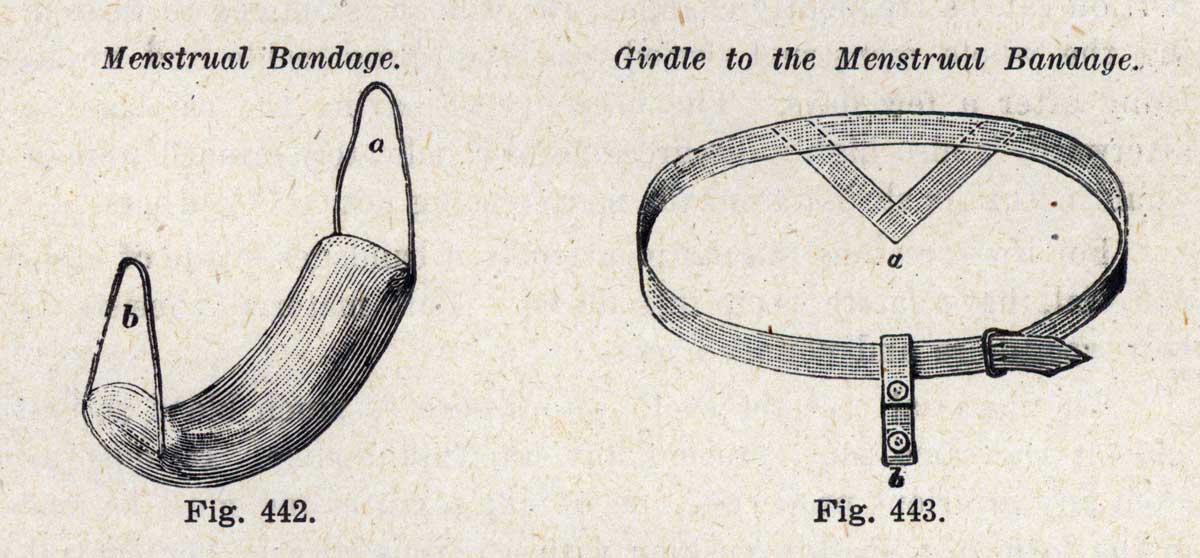No Girl Left Behind | History Today - 5 minutes read
The lives of British women were transformed between 1870 and the outbreak of the Second World War. Among the changes, the arrival of female physicians in the medical profession signalled a new approach to women’s health and, in particular, how they should live their lives during menstruation.
Nineteenth-century medicine mixed advances in scientific knowledge with lingering ideas about the dangers of menstruation. In 1878, for example, an article in the British Medical Journal stated that, if a menstruating woman touched pork during the curing process, it would become rotten. It was, however, the widely held belief about the need for rest during menstruation that had the most noticeable effect on the lives of upper- and middle-class women. One of the most influential proponents of this view was Henry Maudsley, better known as the founder of the psychiatric hospital in south London that continues to bear his name. In his paper, Sex in Mind in Education, published in 1874, Maudsley, writing on the fundamental differences between men and women, argued that:
It is quite evident that many of those who are foremost in their zeal for raising the education and social status of woman, have not given proper consideration to the nature of her organization, and to the demands which its special functions make upon its strength.
He held that between the ages of 14 to 16 the onset of menstruation made such strenuous demands on girls’ reserves of energy that they were not fit to undertake any form of advanced education. The result of this was that, even after a girl had passed through this problematic age, she could never equal the achievements of her male peers because her efforts would be interrupted every month while she rested. Women and girls were, in effect, barred from higher education and advancement into the professions.
It was not just a lack of energy that would compromise her performance. Maudsley warned that any woman who did not comply with the prohibition against activity during her periods was on the road to derangement, cessation of periods, mental breakdown, epilepsy and chorea.
In truth, however, a more progressive trend had always existed in parallel with such regressive ideologies. An article published in a US medical journal in 1874, for example, stated without reservation that menstruation was not a disability and there was no reason for women to refrain from mental and physical labour during their periods. Nevertheless, the belief persisted.
The first woman to qualify as a doctor in England, Elizabeth Garrett Anderson, was a living refutation of Maudsley’s arguments and, as such, well placed to make a robust reply, which appeared in the Fortnightly Review. She argued that any woman who had ever achieved anything of substance had done so by ignoring the physical demands of menstruation and in the face of hardship and hostility from the outside world. Furthermore, women who worked in factories and domestic service did not have the luxury of resting during menstruation and showed none of the symptoms their social superiors were threatened with.

Between 1876 and 1923 three other women produced vital evidence to back up Garrett Anderson’s arguments. First, Mary Putnam Jacobi, like Garrett Anderson a graduate of the Sorbonne, conducted a large-scale study in the US of muscle strength in women before and after menstruation. She found no difference and concluded, unambiguously: ‘There is nothing in the nature of menstruation to imply the necessity, or even desirability, of rest.’
In 1914 the American psychologist Leta Hollingworth published the results of an experiment in which she compared the mental and physical performance of men and women over a number of months and, although she only investigated a small number of participants, the results proved influential. Her conclusion was as follows:
Careful and exact measurement did not reveal a periodic mental or motor inefficiency in normal women and there was no recurring period of maximum efficiency within each month.
In 1923 Clelia Duel Mosher’s study of 12,000 menstrual cycles in 2,000 women led to the publication of Woman’s Physical Freedom, in which she stated that debilitating symptoms, such as period pain, were attributable to a poor health regime and the wearing of tight corsets, rather than a lack of rest. She suggested throwing the corsets away and taking up a course of breathing exercises, which she herself had designed.
In Britain, the Women’s Medical Federation (WMF) published the results of an impressive survey of 6,000 girls in 1930, which showed that playing games during menstruation had no negative effects on their health. The study also identified a lack of proper facilities in schools for the disposal of pads and the absence of emergency supplies for girls whose periods started unexpectedly.
Even within the WMF, though, ambivalent attitudes towards girls and their periods persisted. An exercise book now held in the Wellcome Collection records the minutes of a committee of the WMF, which met between 1937 and 1938 to produce a leaflet on menstruation for girls approaching adolescence. Months passed between meetings and the committee members could reach no agreement about its contents. The issue was ultimately passed on to a higher committee and not mentioned again. The minutes show that the committee agreed on one thing, though: ‘The mother is usually the most suitable person’ to teach girls about their periods, entirely consistent with the guidance given by their Victorian predecessors.
While the medical profession has moved on, some popular attitudes towards menstruation have been slow to progress since the 1930s. The website of one of the UK’s leading brands of sanitary products, Bodyform, for example, has a page dedicated to debunking persistent myths, reassuring girls that swimming and hair washing during menstruation are completely safe and that taking exercise is beneficial.
Jane McChrystal is the author of The Splendid Mrs McCheyne and the East London Federation of Suffragettes (The Choir Press, 2020).
Source: History Today Feed